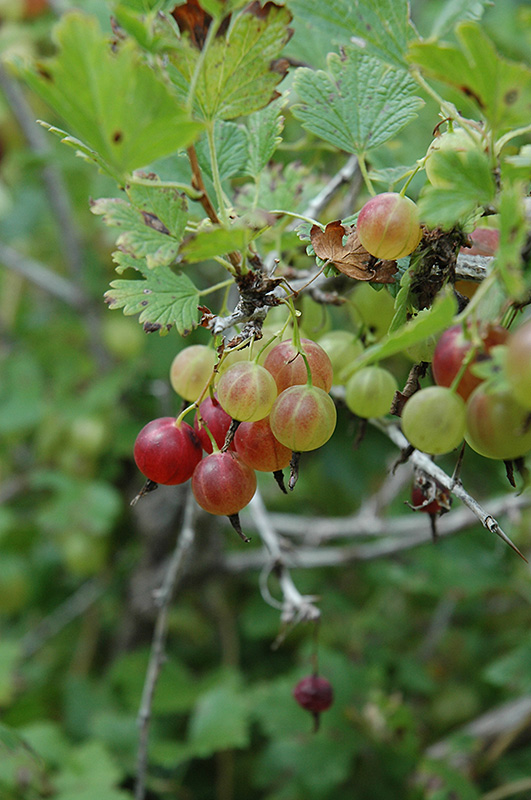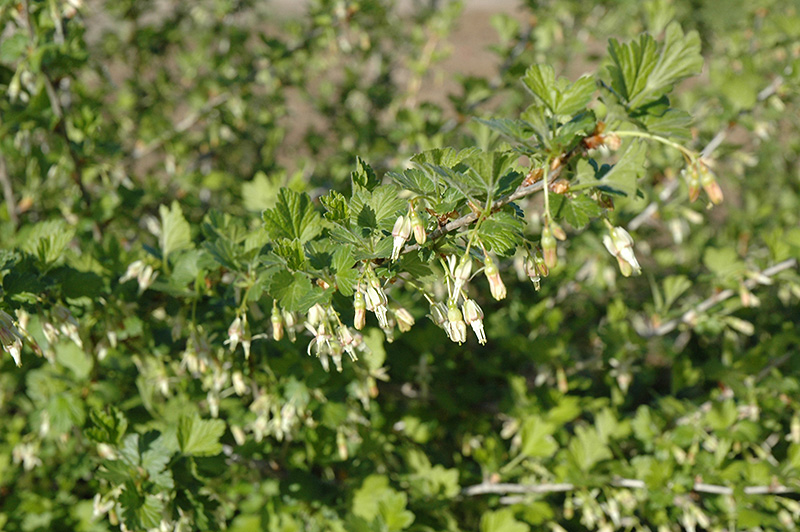Plant Library
Height: 4 feet
Spread: 5 feet
Sunlight:
![]()
![]()
Hardiness Zone: 3
Description:
A virtually thornless selection of gooseberry for the home orchard that produces abundant yellow-green fruit that develop a salmon pink blush when ripe, sweet flesh and a tangy skin; resistant to mildew, needs regular pruning for best production
Edible Qualities
Pixwell Gooseberry is a small shrub that is commonly grown for its edible qualities. It produces chartreuse round berries with a salmon blush which are usually ready for picking from early to mid summer. The berries have a tangy taste and a juicy texture.
The berries are most often used in the following ways:
- Fresh Eating
- Baking
- Preserves
Features & Attributes
Pixwell Gooseberry has rich green deciduous foliage on a plant with an upright spreading habit of growth. The lobed leaves turn yellow in fall. It features an abundance of magnificent chartreuse berries with salmon blush in early summer.
This is a multi-stemmed deciduous shrub with an upright spreading habit of growth. Its average texture blends into the landscape, but can be balanced by one or two finer or coarser trees or shrubs for an effective composition. This plant will require occasional maintenance and upkeep, and is best pruned in late winter once the threat of extreme cold has passed. It is a good choice for attracting birds and butterflies to your yard. It has no significant negative characteristics.
Aside from its primary use as an edible, Pixwell Gooseberry is sutiable for the following landscape applications;
- Orchard/Edible Landscaping
Planting & Growing
Pixwell Gooseberry will grow to be about 4 feet tall at maturity, with a spread of 5 feet. It has a low canopy. It grows at a medium rate, and under ideal conditions can be expected to live for approximately 15 years. This is a self-pollinating variety, so it doesn't require a second plant nearby to set fruit.
This shrub is typically grown in a designated area of the yard because of its mature size and spread. It does best in full sun to partial shade. It prefers to grow in average to moist conditions, and shouldn't be allowed to dry out. It is not particular as to soil type or pH. It is somewhat tolerant of urban pollution, and will benefit from being planted in a relatively sheltered location. This particular variety is an interspecific hybrid.
Disclaimer - This Plant Finder tool is an online resource representing many of the varieties that we carry over the course of the season, and is intended for informational purposes only. Inventory varies seasonally, so we cannot guarantee that every plant will be in stock at all times - please contact the store directly for availability. It does not include our entire inventory of plants, so be sure to visit our store to see varieties that may not be represented on this list.




